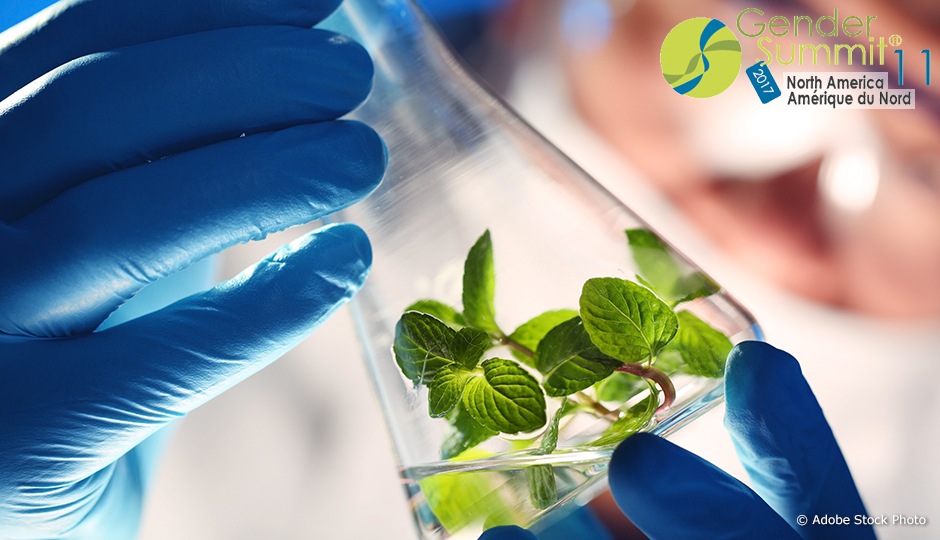When she was a little girl, Isabel Desgagné-Penix, a professor in the Department of Chemistry, Biochemistry and Physics at Université du Québec à Trois-Rivières, would see the women of her Lac-Saint-Jean community concoct plant-based remedies because they didn’t have enough money to go to the doctor. “That is what first ignited the spark of science in me,” observes the young Innu woman. Although she had no university-educated role models in her village, she did a bachelor degree in microbiology followed by a Master’s in immunology and cellular biology at Université de Sherbrooke, with a view to studying the pharmaceutical properties of traditional medicinal plants. It was a disturbing experience. “I didn’t think like the others,” she recalls. “My ideas were often seen as bizarre.” Feeling that she didn’t fit in the research world, the microbiologist returned to her native region to work as the supervisor of a biochemical analysis laboratory. This career was short-lived. A difficult family environment and unsatisfied scientific curiosity prompted her to buy a bus ticket to Texas, where she met a researcher passionate about medicinal plants.
The importance of mentors
“I was captivated by Valerie Sponsel, a strong but gentle woman, who has made a place for herself in a world of men,” observes Isabel Desgagné-Penix. During her PhD in cellular and molecular biology, the young woman gave birth to a son; thanks to her mentor, she was able to reconcile her life as a single mother with her research work. For her postdoctoral studies, Isabel Desgagné-Penix flew to Calgary where her research director, Peter Facchini, left her to follow up on her original ideas. This led to her receiving the University of Calgary Edward R. McCauley Award for Postdoctoral Research Excellence in Biological Science in 2012 for her work on the genomics and biochemistry of natural products obtained from the opium poppy and other plants capable of producing alkaloids, such as codeine and morphine, substances that are highly sought after for their powerful pharmaceutical properties.
In 2013, UQTR set its sights on the young scientist, who had become a mother for the second time, offering her a position as a research professor to pursue her work on alkaloids. As plants produce few of these molecules, there is a high demand for another manufacturing method using biotechnology. The researcher’s dream is to incorporate the natural synthesis pathways of alkaloids into yeast or microalgae to turn them into tiny drug factories. “But first I need to properly understand each of the biochemical stages at work in the plant,” explains Isabel Desgagné-Penix, a member of the Centre Sève research centre: a colossal task, as not much is known on the subject.
Celebrating differences in research
This is not the researcher’s first challenge. “I have often hidden my aboriginal origins, because of prejudice,” she admits. “And yet, it is these origins that allowed me to adapt to all kinds of situations, like my ancestors who went searching in the forest for medicine they could not buy.” Living in different places has led the biochemist to become aware of her strengths in research. “Never think you’re not made for this career,” she states. “And don’t be afraid of hard times, because those are the times from which we learn the most.”
Isabel Desgagné-Penix deeply believes that research needs ambassadors from all walks of life, men and women alike, because every researcher thinks differently and approaches students in his or her own way. She does not hesitate to take on this role, volunteering as a judge at aboriginal science fairs.






